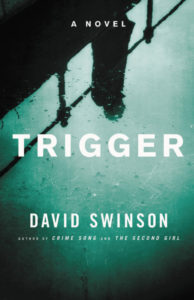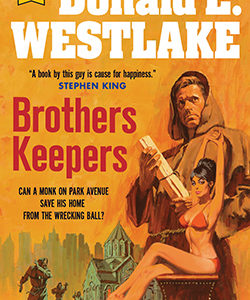There are so many books that inspire me, but only a few that I go back to and read again, and again. I rarely read books while writing, but when I’m lacking drive or just feeling lazy there are a few go-to books that both inspire me to write and remind me about what writing can do. I often need to be reminded about what writing can do—the power a great protagonist and the accompanying characters can have, the subtle message the book offers about life in general, society, crime, and of course, justice. That’s what I love about these books. They are subtle, yet powerful. Not in your face with this is what I want to say. I could fill a few pages with a list of books I go back to and read over and over again, but these are at the ones at the top for me.
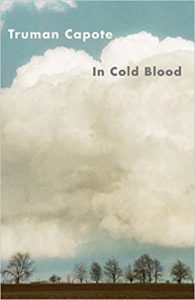
In Cold Blood, by Truman Capote
Talk about putting your life into writing a book. Only a handful of authors can do something like that. Right now, I’m not one of them. I wish I had the kid of patience Truman Capote had—all the research, and the interviews. As a former police detective, I’ve worked some terrible cases and one of the hardest parts was interviewing the victims or the family of the victims. It stays with you. I can imagine how much stayed with Capote. I’m sure writing this book changed him. What I love most about In Cold Blood is how it unfolds for us the nature of violence, especially in America at that time, and even today. It also reads like fiction. For me, this book is the perfect example of what a book can do.
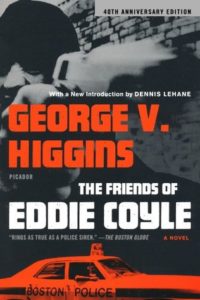
The Friends of Eddie Coyle, by George V. Higgins
I’m a bit ashamed to admit I only recently read Higgins’ The Friends of Eddie Coyle. I’m happy I read it now, though, at the end of the Frank Marr trilogy. It would have seriously influenced my writing. I have seen the movie, more than once, but I can thank author Tim O’Mara for the reason I picked up the book. He was interviewing me for The Big Thrill Magazine and asked if I had a special book that I turned to when I needed inspiration. When I told him what book (on this list), he was shocked, telling me he would have thought I’d say The Friends of Eddie Coyle.
Higgins’ book was a game changer for me. It was a game changer when it was originally published in 1970. The power of dialogue. He knew it, and used mostly dialogue to tell the story. Very little description, and so much authentic dialogue. Also, how pathetic all the characters were, but still it was hard to put down. Wow. It is officially one of my go-to books now.
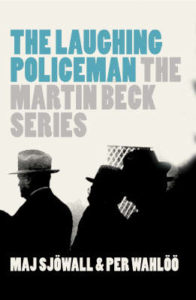
The Martin Beck series, by Per Wahlöö, Maj Sjöwall
I originally read these books around 1994, when I was still in the police academy. I was living with my father in Washington, DC at the time so I could save money. He had a huge book collection including all ten of the first edition, hardcover Martin Beck books, by Per Wahlöö, Maj Sjöwall, which take place over from 1965 to 1975.
When I was in the academy I went to bed early, but I loved to read. I picked up the first book in the series, Roseanna, because it looked like a short read. In fact, they were all short reads. I nearly finished it in one night. Even though the city was Stockholm, far from DC, it felt familiar. Maybe in part because I lived in Stockholm for a few years as a teen. Even though I was still learning about police procedure, the book felt authentic, and they nailed what little I did know at the time. I go back to certain books, like The Laughing Policeman or Cop Killer when I need to be reminded that simplicity is often the answer to a great story, as long as you have a strong, compelling protagonist, and are able to reveal the dark side of such a beautiful city.
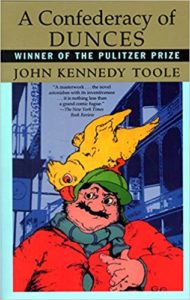
A Confederacy of Dunces, by John Kennedy Toole
When I want to be inspired by a character and reminded how you can turn an obnoxious slob like Ignatius Reilly into someone likable, I go back to A Confederacy of Dunces. It is the perfect tragicomedy. The story of how it came to be published is a sad one, though. After the author committed suicide his mother got it published by Louisiana State University Press. I first read this book in the eighties, when I was living in Long Beach, CA. It’s one of those books that renewed my long-time interest in being a writer. I read it a couple more times when I moved to Washington, DC and became a cop, and then again when I got the idea to write The Second Girl, and the drug-addicted, violent character Frank Marr. I figured that I had to love Frank Marr as much as John Kennedy Toole loved Ignatius or I would just have and unlikable character that I’m sure no one could get into. The ending is also one of my favorite endings. It influenced me so much that I try, try, try, to measure up to it in my books.
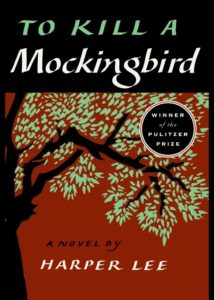
To Kill a Mockingbird, by Harper Lee
Harper Lee’s, To Kill a Mockingbird is my absolute go-to book when I need inspiration. I’ve read it numerous times and it’s one of those books that always feels like you’re reading it for the first time. Back when it was released, the publishing world didn’t have all the sub-genre categories that we have now. It was just considered great fiction. I imagine that if it were nowadays it would be categorized in everything from literature to mystery/suspense, courtroom drama to young adult. Its first person, past tense, is what got me hooked on first person. I read certain sentences or passages over and over, often stunned by how she put the words together. The greatness of the book is something to aspire to, even though I know I will probably never achieve it. Merely hoping is more than enough.
***


